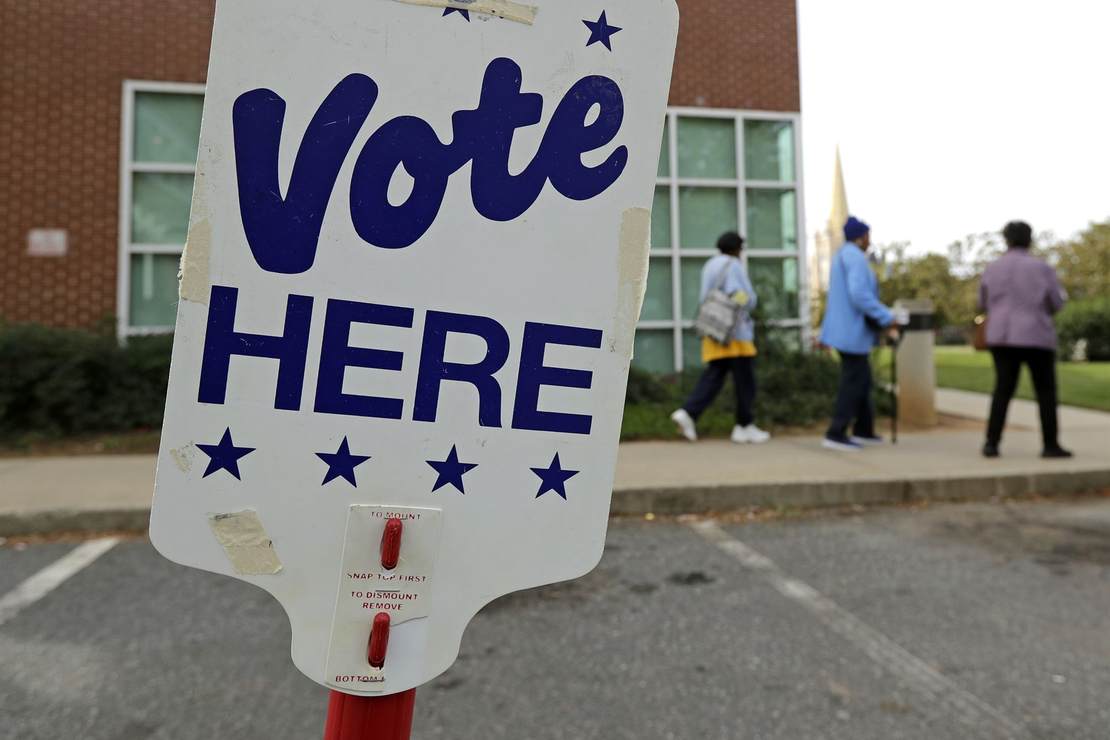You’ve heard the hype for weeks: Democrats have closed the gap on Republicans and stand a chance of fending off a red wave in November! Beware the wrath of liberal women who will vote in droves this “Roevember” in retaliation for the ruling in Dobbs v. Women’s Health Organization, which overturned Roe v. Wade, returning the responsibility of regulating abortion to the states.
Yada, yada, yada.
Despite this, It nevertheless seemed unlikely that Democrats would be able to hold onto the majority in the House, where they currently only hold a slim majority. However, recent trends in polling have given Democrats hope that they can not only hold onto their majority in the Senate, but expand their majority.
Kamala Harris let the cat out of the bag on Sunday, saying that all Democrats need is 52 seats in the Senate to nuke the filibuster so that they can codify Roe v. Wade and overhaul our elections without Republicans being able to do diddly squat about it. And, polls have shown that this goal might actually be possible.
But, do they really? Some Democrats are starting to be concerned that their hopes of holding onto the majority in the Senate might be a mirage. How is that, you ask? Well, it’s simple, really. It turns out that various battleground polls showing Democratic Senate candidates with leads over their Republican opponents are curiously the same states where polls grossly overestimated Hillary Clinton’s support in 2016 and Joe Biden’s support in 2020.
According to Nate Cohn, the New York Times‘ chief political analyst, “the polling warning signs are flashing again,” as he has found “a consistent link between Democratic strength today and polling error two years ago.”
One such state is Wisconsin, where incumbent Republican Sen. Ron Johnson is widely favored to win reelection, yet, he observes, “the polls have exceeded the wildest expectations of Democrats.”
Related: November Is Looking Even Brighter for Georgia Republicans
“The state was ground zero for survey error in 2020, when pre-election polls proved to be too good to be true for Mr. Biden. In the end, the polls overestimated Mr. Biden by about eight percentage points,’ he said. “Eerily enough, Mr. Barnes is faring better than expected by a similar margin.”
But this isn’t just happening in Wisconsin. It’s happening in several battleground states.
First newsletter post: the polling warning signs are flashing again.
Democrats are outpacing expectations in exactly the states where the polls overestimated Joe Biden in ’20
https://t.co/Kasyy2m0zc pic.twitter.com/Qa8MCMdg0Z— Nate Cohn (@Nate_Cohn) September 12, 2022
What does this mean? Assuming a similar polling discrepancy in 2022 as there was in 2020, Cohn sees the Democrats’ edge in Senate races in Wisconsin, North Carolina, and Ohio disappearing, which means that “Republicans would need any two of Georgia, Arizona, Nevada or Pennsylvania” to take back the Senate.
Cohn assumes that Democrats are “well ahead” in Pennsylvania and Arizona. But recently, polling shows both states have tightened. Susquehanna and Emerson show Fetterman up by 5 and 4 points, respectively—not the 8-point average lead he assumes. RealClearPolitics has Democrat Sen. Mark Kelly up an average of 4 points in Arizona, but Cohn assumes Kelly is up 8 points. In other words, the situation for Democrats in November could be even worse than Cohn predicts.
In fairness, Cohn argues that the polls may not be so wrong this year. “None of this means the polls are destined to be as wrong as they were in 2020,” he says. “But the pattern is worth taking seriously after what happened two years ago.”
But if the polls are wrong, Cohn already knows why. “If the polls are wrong yet again, it will not be hard to explain. Most pollsters haven’t made significant methodological changes since the last election.”
